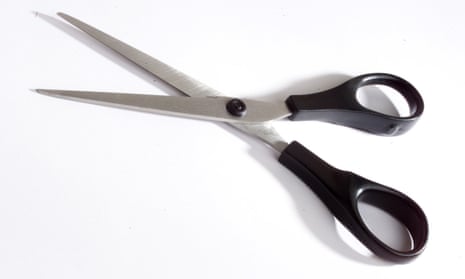Thursday marks Left Handers Day, a chance for 10-15% of the US population to share their pride as lefties and raise awareness about the issues faced by those living in a right-handed world.
Ink smudges and a lack of suitable scissor options have always plagued left-handed people, but according to scientists , those are only minor peculiarities compared to the underlying psychological differences at play.
Over the past few years, numerous studies have been conducted on elusive left-handers, with results ranging from absurd to alarming.
Lefties are more affected by fear
A study at Queen Margaret University in Edinburgh discovered that left-handed participants showed more symptoms found in patients suffering from post-traumatic stress disorder after watching an eight-minute clip from Silence of the Lambs than right-handed participants did.
Lefties get angrier
A study in The Journal of Nervous and Mental Disease suggested that those who are left-handed are more prone to negative emotions. It also found that when processing emotions, lefties have a greater imbalance in activity between the left and right brains. However, the study was extremely small, with only 55 participants. (It could also be argued that left-handed participants were angrier because of the right-handed world they live in.)
Lefties are more inhibited
Despite the previous study that suggests a short fuse, a study from Abertay University in Scotland claims that those who favor their left hand are actually more shy, embarrassed and anxious. Researchers tested 46 left-handers and 66 right-handers and found that lefties agreed more with statements like “I worry about making mistakes” and “criticism or scolding hurts me quite a bit”.
“Left-handers are more likely to hesitate whereas right-handers tend to jump in a bit more,” head researcher Dr Lynn Wright told the BBC. “In left-handers the right half of the brain is dominant, and it is this side that seems to control negative aspects of emotion. In right-handers the left brain dominates.”
Lefties are more creative
Research in the American Journal of Psychology provided evidence that left-handed people are better at divergent thinking, a thought-process method where one explores many possible solutions. Another study found an increased cognitive flexibility (switching between thinking about two concepts, or thinking about multiple concepts simultaneously) among the ambidextrous and the left-handed. A New Yorker article pointed out that a large number of architects, musicians, and art and music students are left-handed.
Lefties hear things differently
A study from Georgetown University medical center found that people who are using their left hands when listening may more easily hear slowly changing sounds like syllables or intonation, whereas someone using their right hand would more easily hear rapidly changing sounds like consonants.
Lefties process multiple stimuli faster than righties
Research conducted in 2006 at the Australian National University and published in the journal Neuropsychology suggested that those who favor their left hand might make use of both hemispheres in their brain for some tasks that right-handed people use only one for.
Lead researcher Dr Nick Cherbuin told AM ABC that the connection between the left and right brain is “somewhat larger and better connected in left-handers”. Which means, in theory, lefties have an advantage when playing sports and video games.

Comments (…)
Sign in or create your Guardian account to join the discussion